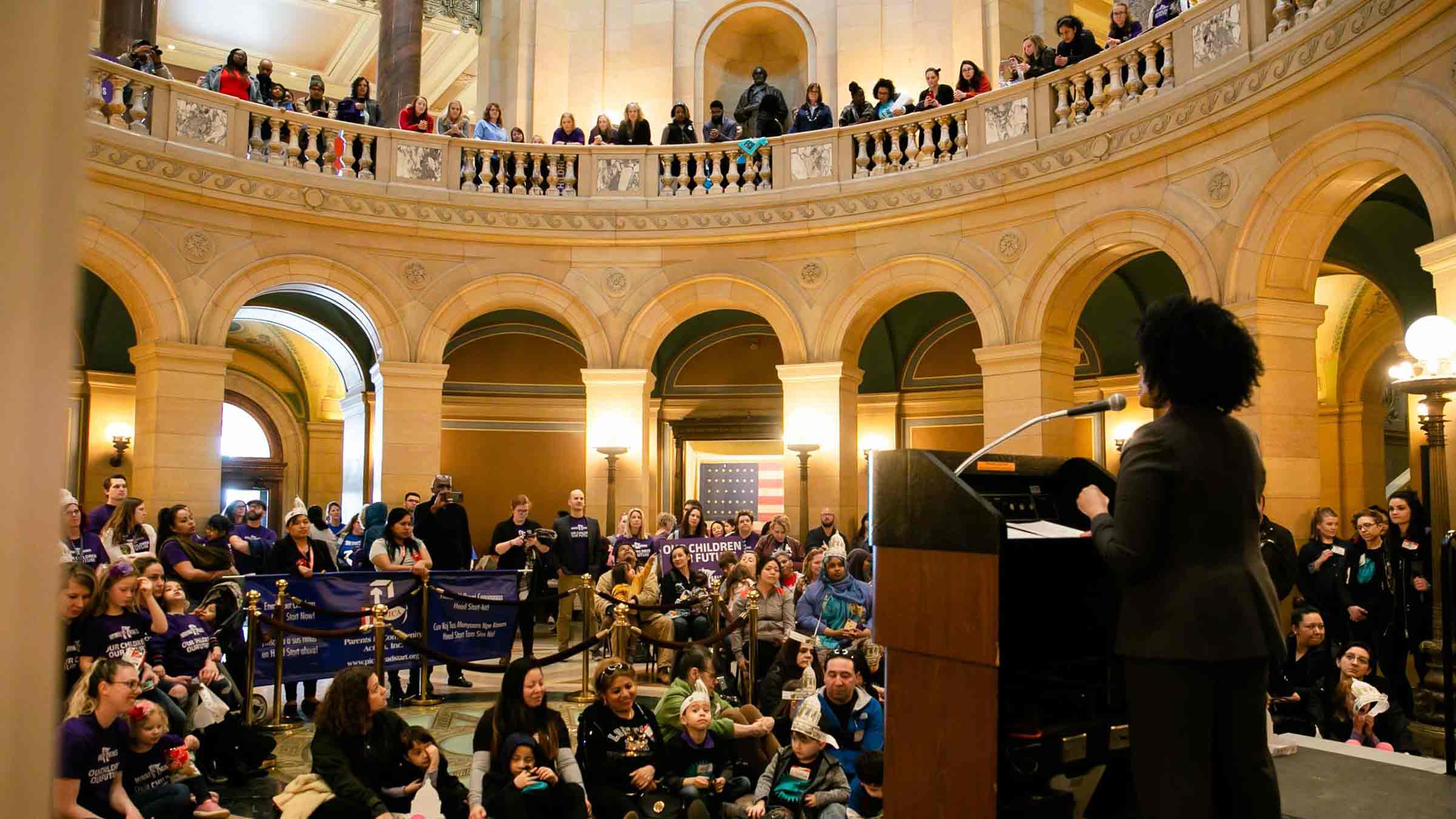
Greater Twin Cities United Way today announced our policy priorities and advocacy agenda for the 2023 Legislative Session, which begins on Tuesday, January 3. Informed by our nonprofit partners from across the nine-county metro area, our priorities are focused on advancing equitable policies and funding that support a community where all people thrive, regardless of income, race or place.
In addition to amplifying the voices of our nonprofit and coalition partners, we use real-time data from our 211 resource helpline and 988 Suicide and Crisis Lifeline to advance our work at the Capitol. Our advocacy agenda includes issues we lead, support and endorse related to our three impact areas of household stability, educational success and economic opportunity.
Minnesota currently has a $17.6 billion surplus, and our agenda can help identify some of the biggest challenges facing our communities and policy solutions to address them. We will work to ensure these funds are responsibly targeted and prioritized, and together we can spur meaningful change in historic ways.
35,000 Minnesota children do not have access to affordable, culturally responsive, trauma-sensitive early care. Through our 80×3 innovation initiative, United Way seeks to transform the early childhood landscape to create a region of trauma-sensitive caregivers and stabilize the workforce so all children can thrive. 80×3 partners with child care providers to implement improved trauma-sensitive knowledge and skills among caregivers, trauma-sensitive policies and procedures within child care organizations, and new resources to support families.
Minnesota’s homeless response system is designed so that most holistic resources, such as mental health, employment and education, can often only be accessed after someone has become homeless. Without concerted, multi-sector, regional-scale change, many of the 9,000 youth exiting foster care and 25 percent of adults transitioning out of incarceration each year will exit these systems into homelessness. We will be advocating for making these resources available to people before they exit these systems, as this is proven to help prevent homelessness.
This session, we also will be supporting the advancement of eviction reforms through a 14-day pre-eviction notice and eviction expungement as well as the creation and preservation of affordable and public housing through bonding.
The “benefits cliff” occurs when a public benefit program quickly tapers off — or phases out completely — resulting from a small increase in household earnings. The small gain in income, coupled with a loss of benefits, ultimately causes many families to lose progress financially.
We can begin to advance policies that remove systemic barriers and mitigate the impacts of the benefits cliff to create pathways toward economic stability for working families through two proposals this session:
Thank you for participating in our advocacy work! Keep an eye out for updates and timely opportunities to make a difference as changemakers together.
Check out our Advocacy Toolkit and sign up to join our Advocacy Network to stay informed about opportunities to get involved and advocate this session!